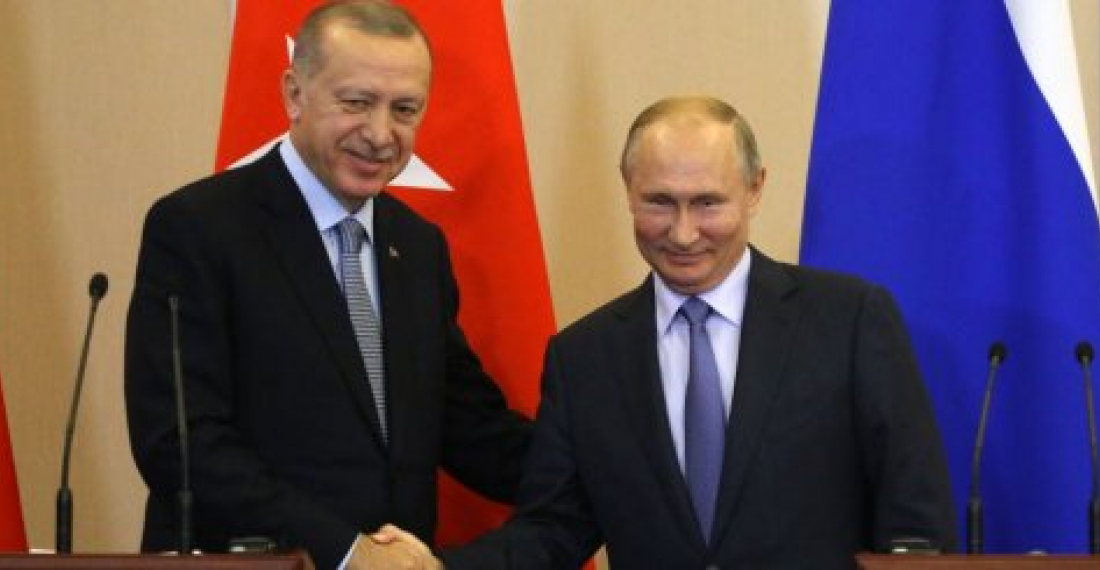Over the last days there have been intensive diplomatic contacts between Russia and Turkey on efforts to stop the ongoing war between Armenians and Azerbaijanis and move towards a solution of the Nagorno-Karabakh conflict.
On Saturday (7 November), the Kremlin reported that Russian President Vladimir Putin informed Turkish President Recep Tayyip Erdogan in a phone call about phone talks understood to have taken place on 1 and 2 November, with the leaders of Azerbaijan and Armenia aimed at looking for a solution to the Nagorno-Karabakh conflict.
According to the Kremlin press office, both presidents confirmed readiness to seek peace for Nagorno-Karabakh. The statement on the Kremlin's website said:
The two presidents had a detailed discussion on the developments in the Nagorno-Karabakh conflict zone. Vladimir Putin informed his Turkish counterpart about a series of telephone conversations he had with the leaders Azerbaijan and Armenia. These contacts were focused on finding options for a quick cessation of hostilities and paving the way to a political and diplomatic settlement. Vladimir Putin and Recep Tayyip Erdogan reaffirmed their mutual commitment to working together to achieve a peaceful resolution to the conflict.
Also on Saturday, the Turkish presidential office said that Erdogan insisted that Yerevan should be persuaded to sit at the negotiation table. He pointed out that a permanent solution to that conflict was a key factor for stability in the region, according to the press release.
On Sunday the Turkish foreign and defence ministers flew to Baku to meet the Azerbaijani president. For foreign minister Mevlut Cavisoglu this was his second visit to Baku in a week.
On Monday, CNN Turk, quoting sources close to the Turkish presidency, said that Turkey was proposing to set up a "working group" with Russia to deal with the crisis. If that happens this will create for the first time in nearly thirty years an alternative mechanism to the OSCE Minsk Group, of which Russia is a co-chair together with France and the United States.
Commonspace.eu political editor said in a comment that some movement on the diplomatic front is likely this week, with Russia and Turkey taking the lead. For the international community stopping the fighting remains a priorrity, but for Russia and Turkey there is also another prioirity, namely who will oversee the process of resuming negotiations on the future of the region going forward. It is clear that both countries want to be at the centre of this process, but it appears that, if possible, they also want to exclude anyone, else.
source: commonspace.eu with agencies
photo: President Putin of Russia and president Erdogan of Turkey (archive picture)






